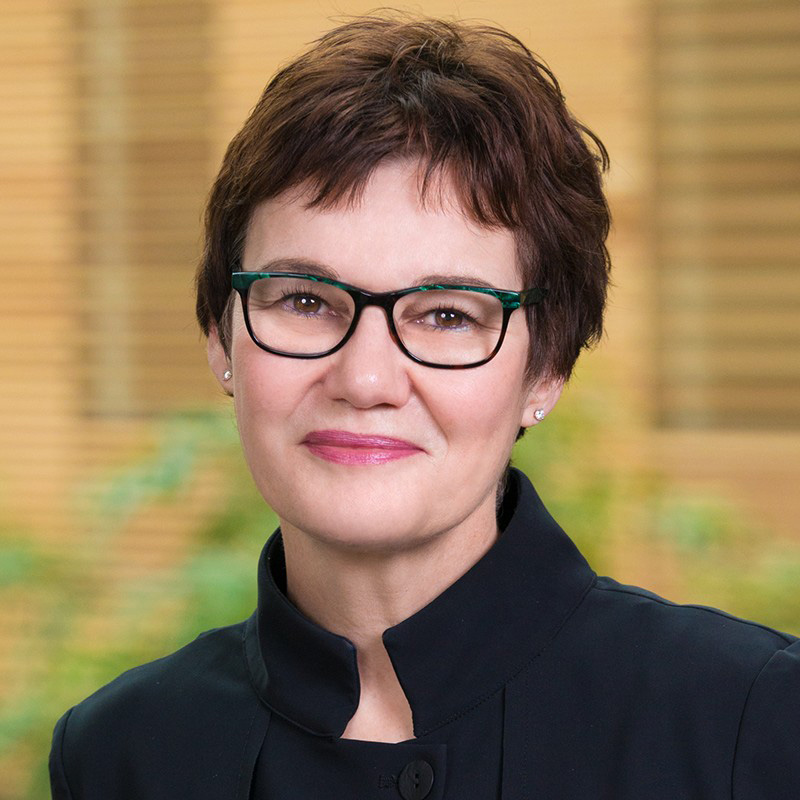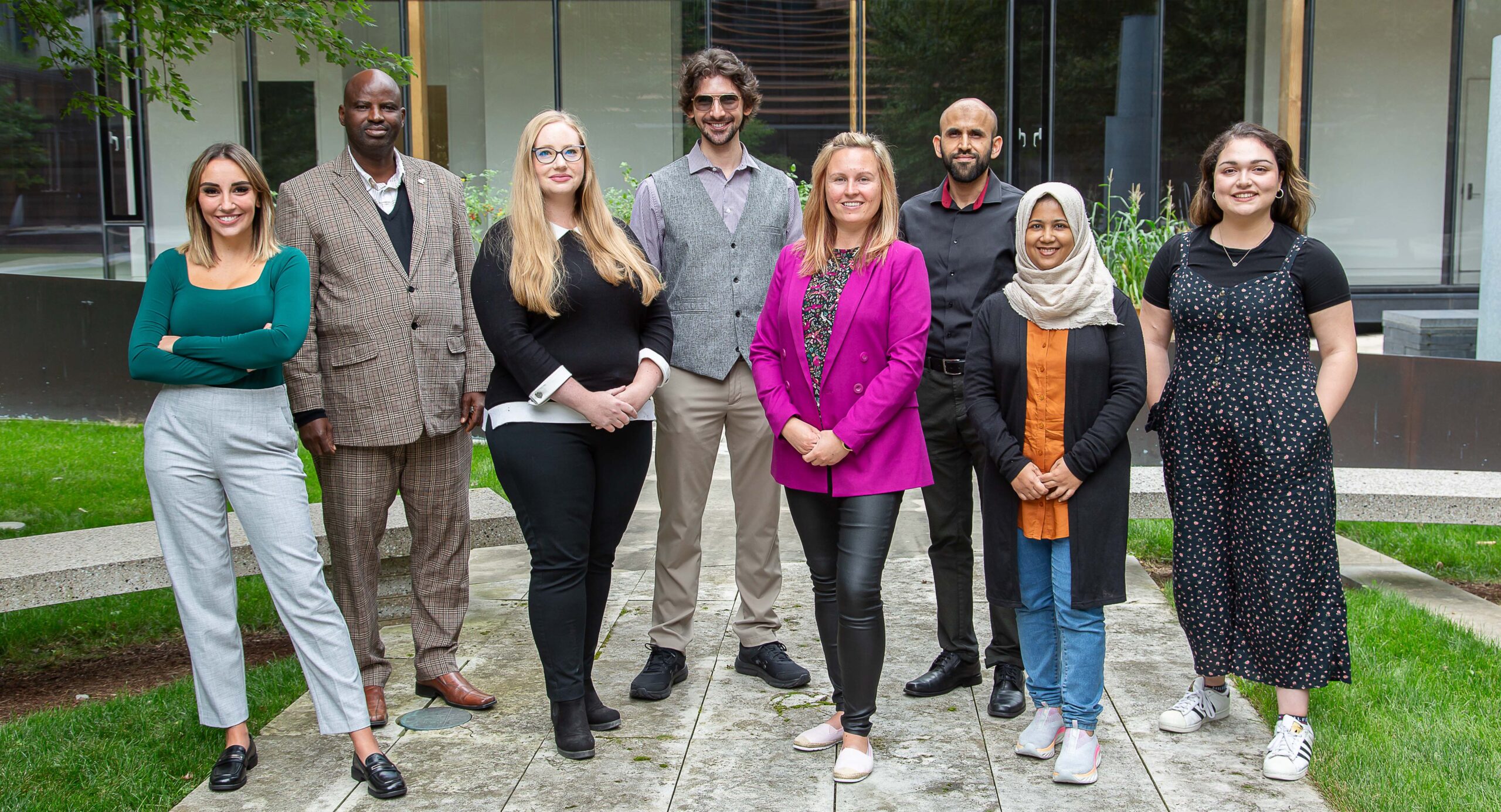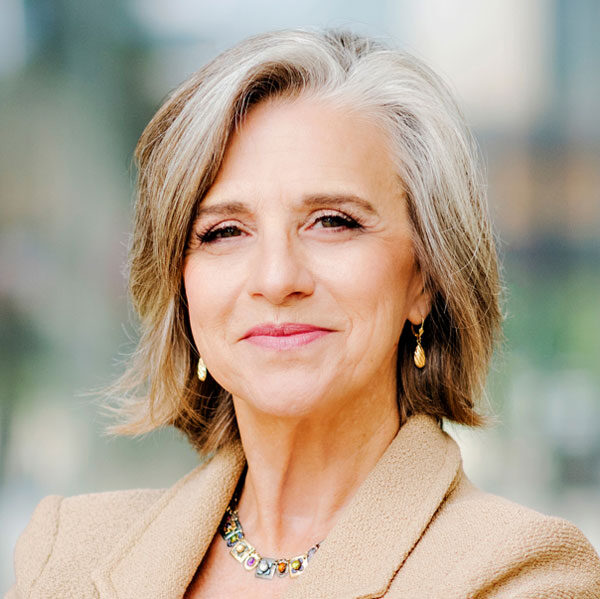PhD IN GLOBAL GOVERNANCE
We look forward to welcoming you to the joint PhD program at the Balsillie School of International Affairs
We are about humanity-driven outcomes - developing new solutions to some of the world's most critical problems by improving international relations and global governance for the enhancement of people's lives around the world. Our joint-doctoral degree will provide you with a wide range of careers working in the area of global governance.
“At the BSIA you will discover an environment for learning both hard and soft skills and co-creating a meaningful life. Our doctoral program is known for building relationships with peers within and across the years, enriching your intellectual community and professional network. In addition to the notable accomplishments of our faculty, staff, students, and alumni, they are empathic, have a sense of humour, and manage a healthy work-life balance. Join us and take the next step in your education to support your future solving large-scale, complex problems.”
Co-Director, PhD in Global Governance (Laurier)
“BSIA’s emphasis on interdisciplinarity and collaboration makes it the perfect incubator for groundbreaking research on current and looming global challenges. Here you will acquire the knowledge, skills, and connections to contribute meaningfully to solving those challenges no matter where life takes you — the academy, public service, civil society, or the private sector. Our alumni are having an impact in all four areas, and you can, too.”
Co-Director, PhD in Global Governance (UW)
Specializations
Students must choose to specialize in one of the six fields of the program. To prepare for the comprehensive exam in that field, they must select at least two courses from their chosen field. Of these two, at least one course must be a course identified as “core” for that field.
Conflict and Security
This field is concerned with the referent objects of security and associated threats; the causes and management of conflict; and the global governance challenges of human, state, societal, national, international, ecospheric, and global security. Courses in this stream examine the theory and practice of security at all levels of analysis.
Global Environmental Governance
This field is concerned with the global governance of environmental issues. Courses in this stream examine contemporary dilemmas relating to the ways in which environmental challenges are being addressed and managed by multiple agents through a range of transnational institutions and governance structures, both existing and proposed. Conceptual issues and debates, set within the context of a variety of internationally significant sustainability challenges, are investigated. Multilevel governance of these challenges at the international, regional, national and local levels are examined. Key topics covered include: global climate change, agriculture and food security, international water resource management and environmental aspects of the global economy.
Global Justice and Human Rights
This field is concerned with the study of the relationship between global governance and issues of global justice and human rights. Courses in this stream explore themes such as: the practical and ethical challenges that international human rights and relief organizations encounter when operating in the global south; theoretical approaches to understanding global justice as a contemporary social justice issue, with a particular focus on the cultural constructs relating to conceptions of freedom, obligation, and community; and contemporary debates in the field of human rights, such as those related to cultural relativism and universal human rights, human rights and foreign policy, the place of economic rights, the relationship between gender and human rights, and human rights and retrospective justice.
Global Political Economy
This field is concerned with the governance of the global economy and contemporary issues in international economic relations. Courses in this stream focus on the theoretical and public policy debates relating to governance of the global economy, as well as the evolution of international trade policy. Topics covered include: international finance and intellectual property rights; labour and environmental standards; the control of illicit economic activity; the removal of tariffs on goods and services; and current efforts to integrate services, investment, and intellectual property into the trading regime through the increasing overlap of trade policy with monetary, competition, cultural, environmental and labour policies.
Global Social Governance
This field examines the prospects for the supranational governance of social issues with a particular focus on the political and philosophical underpinnings of transnational social policy cooperation and in relation to governance challenges of migration and mobility arising in relation to borders and intersecting governance systems. Topics covered include: the implicit and explicit prescriptions for and impact upon national social policy of intergovernmental organisations (such as the UN and Bretton Woods Institutions), international non-governmental organisations and international private actors (such as TNCs and consultancy companies); the contribution of supranational organisations, international NGOs and other global actors to the global discourse on social policy; the role of private actors and global public-private partnerships in global health policy; migration/refugee policy and governance, the development of systems of transnational social redistribution, social regulation and social provision and empowerment; and the methods and concepts used by development agencies to assess the social policy of countries and shape their interventions.
Multilateral Institutions and Diplomacy
This field is concerned with the formal and informal practices, institutions and organizations which generate global governance. Courses in this stream focus primarily on the theory, practice and machinery of international organization, public policy, and diplomacy. Topics covered include organization theory, multilateral co-operation, foreign policy, diplomatic history, global social and public policy, representation and negotiation.
Program Requirements
All students must complete six courses, including the following four mandatory courses: the global governance core course, an economics component, the history component, and Research Methods. Students are required to maintain an overall average of 80% in the course phase. See full list of courses
Core Course component (must be completed in the first term of registration in the program)
- GGOV 700 Globalization and Global Governance (UW registration) / GV 710 Globalization and Global Governance (Laurier registration)
Economics Component
- GV 730 Economic Analysis and Global Governance (Laurier registration) / Econ 637 Economic Analysis and Global Governance (UW registration)
- or equivalent (students who have higher than second year macro/micro economics are required to take an economics course other than GV 730/Econ 637)
History Component
- HIST 605 Global Governance in Historical Perspective (UW registration) / GV720 The History of Global Governance (Laurier registration)
Research Methods
- GGOV 701 Research Methods (UW registration) / GV 701 Research Methods (Laurier registration)
Comprehensive Examinations
Normally, candidates must write comprehensive examinations in two areas within 16 months of starting the program. Normally, students will write comprehensive exams in September at the start of their second year. The first examination will be on Global Governance and will test the breadth and depth of a student’s comprehension of the leading literature. For their second examination, students will choose to write a comprehensive examination in one of the six fields of the program. Students can only write an examination in a field if they have completed two courses, one of which must be a “core course” in that field.
Dissertation Proposal
Normally, students will complete and have approved a doctoral dissertation proposal by the end of February of their second year in the program. Completion of the proposal will normally involve a formal presentation and defence of the proposal to the Supervisory Committee. Normally, committee members and the student will also complete their second Annual Progress Report following the defence/approval of the dissertation proposal.
Within one week after completion of the presentation and defence, the student will make any final changes to the proposal that arise from the defence and provide the respective Program Director or Associate Director as well as the respective Program Graduate Coordinator/Program Officer with a copy of the final proposal for their records and the student’s file.
Normally, the doctoral dissertation research proposal will be no more than 30 pages or approximately 15,000 words, exclusive of bibliography. A proposal will include the following: a statement of the principal research question(s) and a justification of the question or questions; an outline of the principal theoretical orientations that are framing the research questions; a detailed outline of the research methods and steps to be taken to obtain answers to the research questions; an assessment of the likely contribution to knowledge of the dissertation research; a timetable for completion of the research.
Laurier students are required to complete the Dissertation Proposal Approval form.
Dissertations – Multiple Manuscript Thesis Guidelines
Doctoral theses can take various forms. The traditional thesis is a sole-authored document with various chapters. However, some theses – the multiple manuscript thesis – consist of a collection of papers that are published or submitted for publication; any such thesis must comply with the following guidelines:
- The multiple manuscript thesis must comply with the policies and guidelines of the student’s host institution.
- Any multiple manuscript thesis must contain at least three articles.
- At least two of the articles must be single-authored, and one may be co-authored provided the student first obtains approval from their supervisor committee, preferably at the time of the proposal defence. If an article is co-authored by the student and authors, the relationship should be explicitly stated with regards to the nature and extent of contributions to the work by all parties involved.
- There must be a common theme among the three articles that is explained in the introduction and conclusion.
- All articles must be of a publishable quality. Acceptance of a manuscript from a journal is separate from and does not constitute acceptance or approval by the advisory committee.
More information about the PhD in Global Governance program can be found in the handbook or on the Wilfrid Laurier University or University of Waterloo program pages.
PhD Program Handbook and Forms
- Graduate Handbook: Joint Laurier-UW Global Governance PhD Program
- GGOV Reading Course Form
- Annual Progress Report Form (Laurier)
- Annual Progress Report Form - year 1 (UW)
- Annual Progress Report Form - year 2 (UW)
- Annual Progress Report Form - year 3 (UW)
- Dissertation Proposal Form (UW)
- GGOV PhD (Laurier) Dissertation Format
- GGOV PhD (UW) Dissertation Template
- Petition for Extension Form (UW)
- PhD Student Forms (Laurier)
- BSIA Graduate Student Research/Travel Support Application Form
- BSIA Conference Travel Support Application Form
- Laurier Faculty of Graduate and Postdoctoral Studies (FGPS) Travel Award Application
- UW Graduate Studies Research Travel Assistantship Application
- UW Field Work Risk Management Program
- Laurier International Research Travel Guidelines
Learn more
Additional program information is available from Maureen Ferraro (Laurier) or Andrew Thompson (UW).






